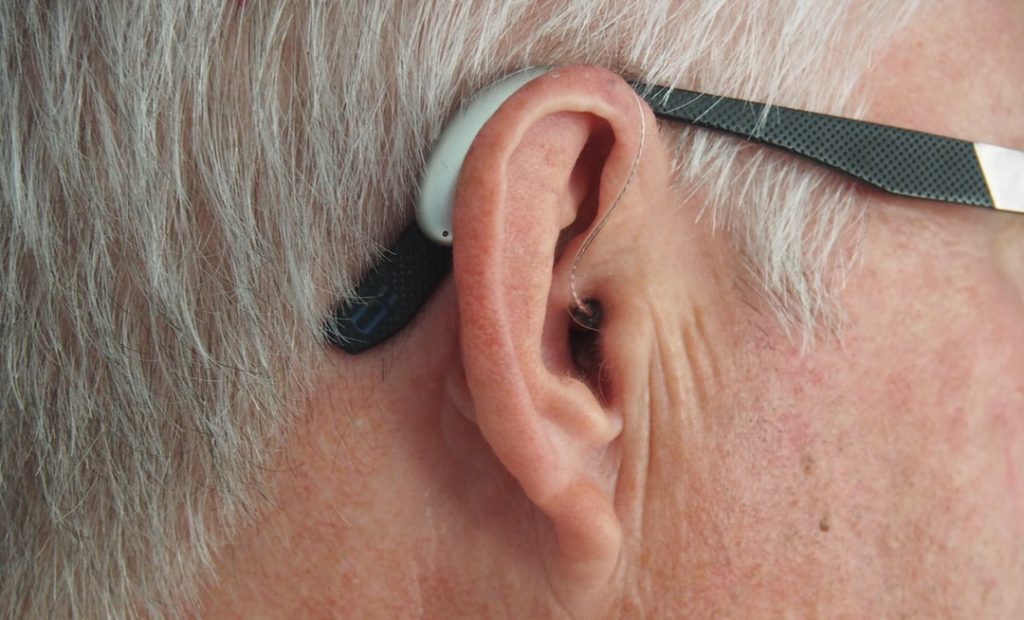Over time, you may have noticed that your hearing has become more muffled than it used to be. You struggled to understand what others were saying to you, especially in a crowd or another situation with lots of background noise. You found yourself raising the volume of the television, asking your loved ones to repeat themselves, or even avoiding social situations. Finally, you went to the doctor to investigate your symptoms. After physical exams and a hearing test or two, you had an answer—you were officially diagnosed with hearing loss.
Even with a formal diagnosis, you likely still have questions. Most critically: now what? Navigating your hearing loss diagnosis can be overwhelming. What can be done to treat your symptoms? How will your life be impacted by whatever level of hearing loss you’re facing?
Consider your treatment options.
When it comes to hearing loss, there are many different treatment options that can ease your symptoms. In some cases, you might even be able to reverse your diagnosis. Your audiologist may remove an earwax blockage that’s causing your issues, bringing you fast, impactful relief. But, even in cases where your hearing issues aren’t reversible, you can still find ways to improve your hearing despite severe hearing loss. Research top rated hearing aids or cochlear implants and figure out what brand, style, and features—like battery life, comfort, and aesthetics—could work best for you. In some cases, your doctor might recommend surgical treatment to reduce your symptoms or reverse your diagnosis. Between the right hearing aid and the other treatment options that your audiologist recommends, you can find yourself with better hearing and less prevalent symptoms.
Make adjustments to your lifestyle.
Chances are, even with a hearing aid or other treatments, your diagnosis is affecting your everyday life. From noise levels at your longtime favorite restaurant to trouble understanding instructions at work, it’s easy to get frustrated. Even something as simple as a phone call or visit to your doctor’s office can be more difficult with profound hearing loss. Perhaps you and your friends can visit a restaurant with a more peaceful, quiet setting. Your employer and colleagues can help improve access to directions and other resources by including accessible transcripts, captions, and written instructions as needed. Telemedicine doctors can write prescriptions, letting you avoid the noisy waiting room at the doctor’s office by getting Telehealth treatment at home. They may even be able to send your prescription in the mail, rather than requiring a trip to the pharmacy, another noisy environment where your hearing issues can cause further issues.
Understand your diagnosis.
In order to make adjustments to your lifestyle or find the right type of hearing aid or other treatment for you, it’s important that you learn as much as possible about your diagnosis. Spend some time with your audiologist, discussing the causes of your particular case. Is your family history littered with instances of profound hearing loss, or did your lifelong occupation feature a lot of loud noises? Seniors might face hearing loss as a natural part of aging, while some people might face side effects of certain prescriptions that damage the inner ear or otherwise affect their hearing. Once you have an understanding of the causes behind your diagnosis, you can better implement lifestyle adjustments, in-person or telemedicine treatments, and other tools to improve your quality of life despite a hearing loss diagnosis.
At first, being newly diagnosed with moderate or severe hearing loss can be an intimidating prospect. Simple activities, like picking up a prescription, using an audio-based smartphone app, or an appointment with your therapist, become more difficult. But, by finding the proper treatment option, whether that’s clearing your ear canal of excess wax or choosing a hearing aid with the advanced features and new technology you need, making adjustments to your everyday life, like opting for Telemedicine service and mail-order pharmacy options, and learning as much as you can about this new addition to your medical history, you can take control of your life, hearing loss notwithstanding.

